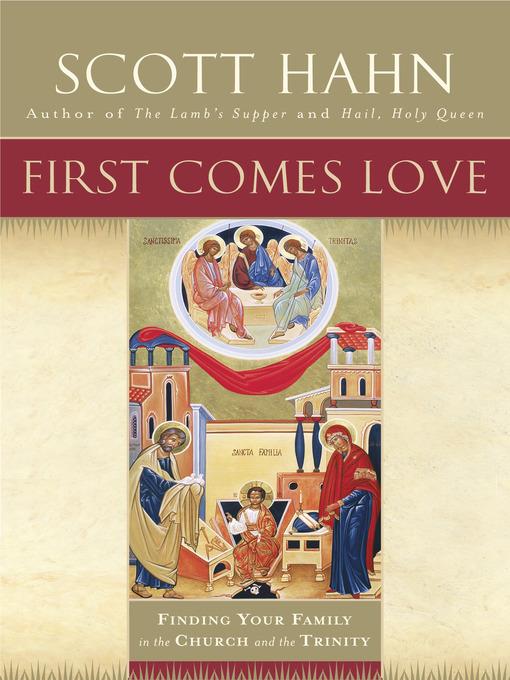
First Comes Love
The Family in the Church and the Trinity
کتاب های مرتبط
- اطلاعات
- نقد و بررسی
- دیدگاه کاربران
نقد و بررسی

February 25, 2002
Beloved Protestant-turned-Catholic writer Hahn (The Lamb's Supper, etc.) gives us his most sophisticated book yet, an extended meditation on the Trinity. Theologians and scholars from Miroslav Volf to Eugene Rogers have been paying more attention to the Trinity in recent years, but Hahn is one of the first authors to produce a book designed to introduce a general audience to the theological resources of Trinitarianism. His central point is that God exists as a Trinitarian family, and that living in God's image means modeling our lives and relationships on God's three-in-one relationship with himself. Although he reveres the institution of the family, Hahn powerfully warns against making an idol out of human relationships, insisting that the Trinity is "the home we have desired," while marriage is but "a living, embodied analogy that points the way to something greater." The book is not flawless. Hahn's effort is slightly marred by the cutesy subheadings with which he insists on cluttering all his books ("Children of a Lesser Good," "Re-flesh My Memory" and so forth). The brief foreword by the Pontifical Roman Theological Academy's Ronald Lawler doesn't add a thing. Some readers—especially those who know that other contemporary theologians find in the Trinity ballast for liberal programs like racial reconciliation and acceptance of homosexuality—may quibble with Hahn's socially conservative ends: for him, Trinitarian life translates into heterosexual marriage and calling God "father." But readers who either share, or can set aside, Hahn's conservative theology will consider this a riveting introduction to the mysterious doctrine of the Trinity.

April 15, 2002
This slender book conveys a monumental message. Using simple stories to illustrate complex theological concepts, Hahn (theology and Scripture, Franciscan Univ. of Steubenville; The Lamb's Supper) compares the human family to the Divine, namely, the Trinity. Employing examples from Scripture, the Church fathers, and Magisterial teachings of the Catholic Church, he shows similarities between human and divine expressions of love. Family-specific terminology like brother, sister, mother, and father used in ordinary conversation mirrors the inner life of the Trinity. Essential Catholic teachings and practices find clear expression in the daily experiences of Christian men and women. The 12 short chapters invite the reader to both personal reflection and active imitation. Additionally, the nearly 40 pages of critical documentation and notes add academic credibility to this accessible text. Recommended for Catholic readers. John-Leonard Berg, Univ. of Wisconsin, Platteville
Copyright 2002 Library Journal, LLC Used with permission.

April 15, 2002
Hahn, a Catholic professor of theology, analyzes the significance of the Holy Trinity within the context of our own human families. According to Catholic ideology, the faithful are called upon to live in love and form families. These families--no matter how dysfunctional or nontraditional they may be--are in turn supported and sustained by both the corporal family that is the church and the divine family of God. Utilizing accessible examples culled from the Scriptures and anecdotes drawn from everyday life, the author discusses the impact of the Holy Trinity on Catholic dogma and daily family life. Hahn has that rare ability to demystify and explain arcane theological concepts in plain language, making this an excellent public library purchase.(Reprinted with permission of Booklist, copyright 2002, American Library Association.)

























دیدگاه کاربران